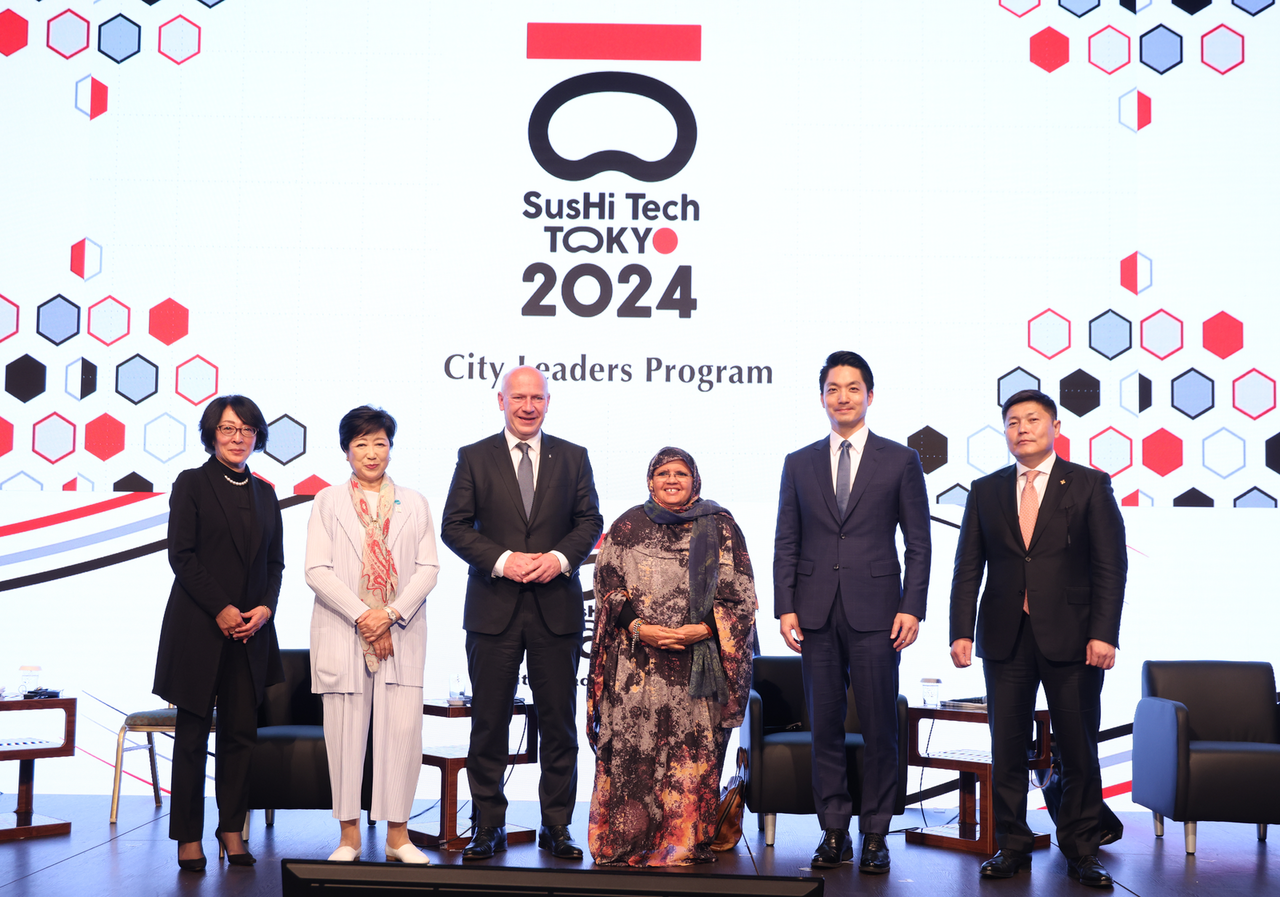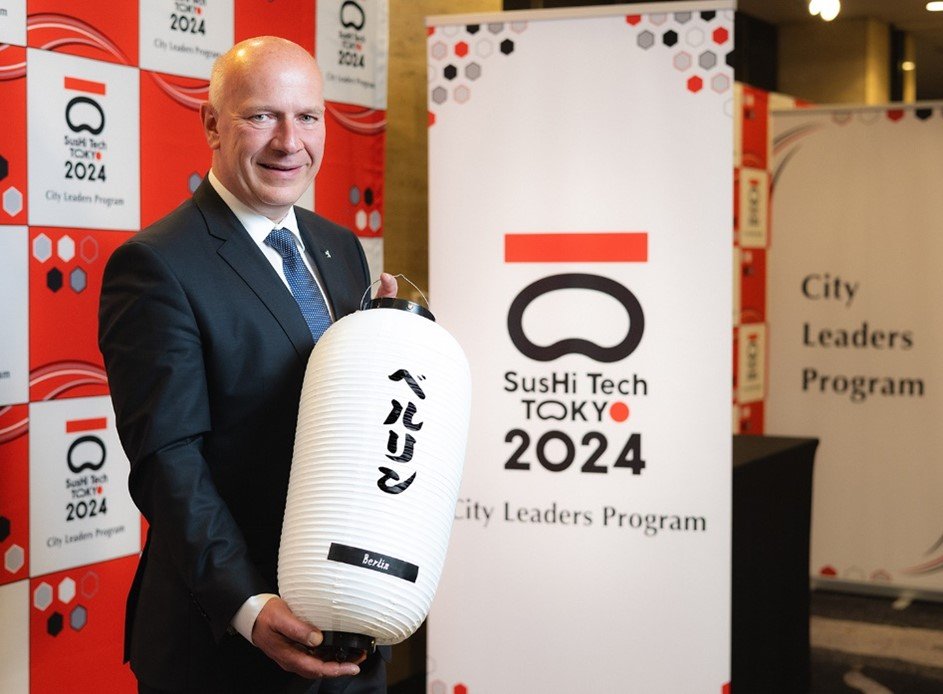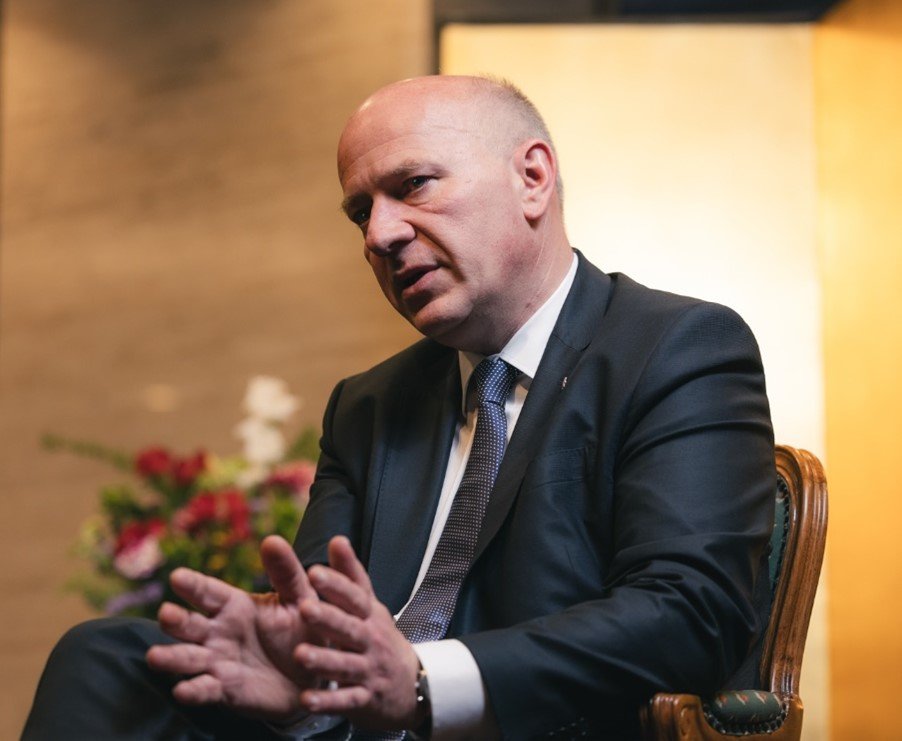
June 28, 2024
Berlin Mayor Voices Hope for Global City Network
Kai Wegner, Governing Mayor of Berlin, made his first visit to Japan in May in commemoration of the 30th anniversary of the friendship between the Tokyo Metropolitan Government (TMG) and Berlin. During his stay, he participated in the SusHi Tech Tokyo 2024 City Leaders Program, organized by the TMG. In this interview, Mayor Wegner stresses the significance of the role of cities in addressing common global challenges and shares his expectations for the Global City Network for Sustainability (G-NETS), proposed by the TMG.
Tell us about the 30th anniversary of the Tokyo-Berlin friendship.
The main objective of this trip is to celebrate the 30th anniversary of the friendship between Tokyo and Berlin. I intend to maintain and strengthen our friendship. Since we face many challenges, we want to work together and find new solutions. These challenges include climate change, urban resilience, digitalization, the role of public transportation, providing reasonably priced housing, and demographic change. Because these issues are very important for the future of all cities, we want to solve them together.
Berlin is famous as a city of culture. Culture can unite and bring people together. Berlin is a cultural city with diversity, and I am sure that Tokyo shares these characteristics.
We are cooperating with Tokyo not only in the field of culture, but also science: we promote inter-university and academic cooperation. Since Berlin is strong in technology, we would like to create a network with Tokyo in this area. While celebrating this 30th anniversary, I met Koike Yuriko, Governor of Tokyo, and we confirmed that we will further strengthen our long-term friendship.

Governor Koike (second left) and The Governing Mayor of Berlin, Kai Wegner (center left) at the City Leaders Program. Photo: courtesy of the Tokyo Metropolitan Government
What was your impression of the City Leaders Program?
In Tokyo, I have had an opportunity to meet leaders from different countries and regions. We all believe that cities must come together to discuss the challenges they face and cooperate in finding new solutions. I think the City Leaders Program that took place today was a great event. I participated in a panel discussion on urban resilience and disaster preparedness, where I explained Berlin's disaster-prevention measures. We must ensure we have the ability to protect our citizens. The role of cities is getting bigger and bigger because of the steady influx of people into them: it is an increasingly urbanized world. Cities in Europe are part of this trend. We must work together to find answers to the many challenges.
What are your expectations for G-NETS?
Our expectations are high. Berlin has set a goal of becoming carbon neutral by 2045. To achieve this target, we need to introduce new types of energy and consider how to provide heating. What can the administration do? How do we cooperate with companies? What ideas can we get from startups? It is difficult to find answers to all these questions. It is important for cities to network and cooperate as well as exchange knowledge and information with each other. The role of cities is growing. Each city may face its own challenges, but it is necessary to think together.
What can Tokyo and Berlin learn from each other?
Tokyo has a wonderful subway system. I would like something similar in Berlin. We have a good subway network, but it is still small and needs to be developed further. I rode the subway yesterday and found it an interesting experience. We can learn a lot from the system's punctuality and cleanliness.
It is very significant to learn from each other, so it is meaningful to deepen this partnership: it is very good to exchange information. Berlin has strengths in the field of science and R&D. It is a place where new technologies are constantly being created. I would like Japanese companies to look to Berlin as a base for expansion, and they can also regard it as a gateway to expand into Europe. I hope that Japanese companies will see Berlin as an economic and investment hub and will increase their business in Berlin.
Tell us about Berlin's attractiveness.
Berlin is an international city: free, diverse, and open. There is a lot of greenery. We have parks and forests. There are many beautiful places. The quality of life is very good. Berlin is also strong in developing new technologies. It is a city that is always changing and will continue to change.
We should not forget its culture. We have the Berlin Philharmonic, sub-cultures, and nightclubs. I want visitors to experience our diverse culture. Berlin also has its history. When Germany was a divided nation, Berlin itself was also divided by a wall. There are many museums and art galleries covering this era and, of course, the whole of Berlin's rich history.

This article was originally provided by Tokyo Updates (May 31, 2024).
Interview and writing by Ito Shingo
Photography by Oikawa Makoto

